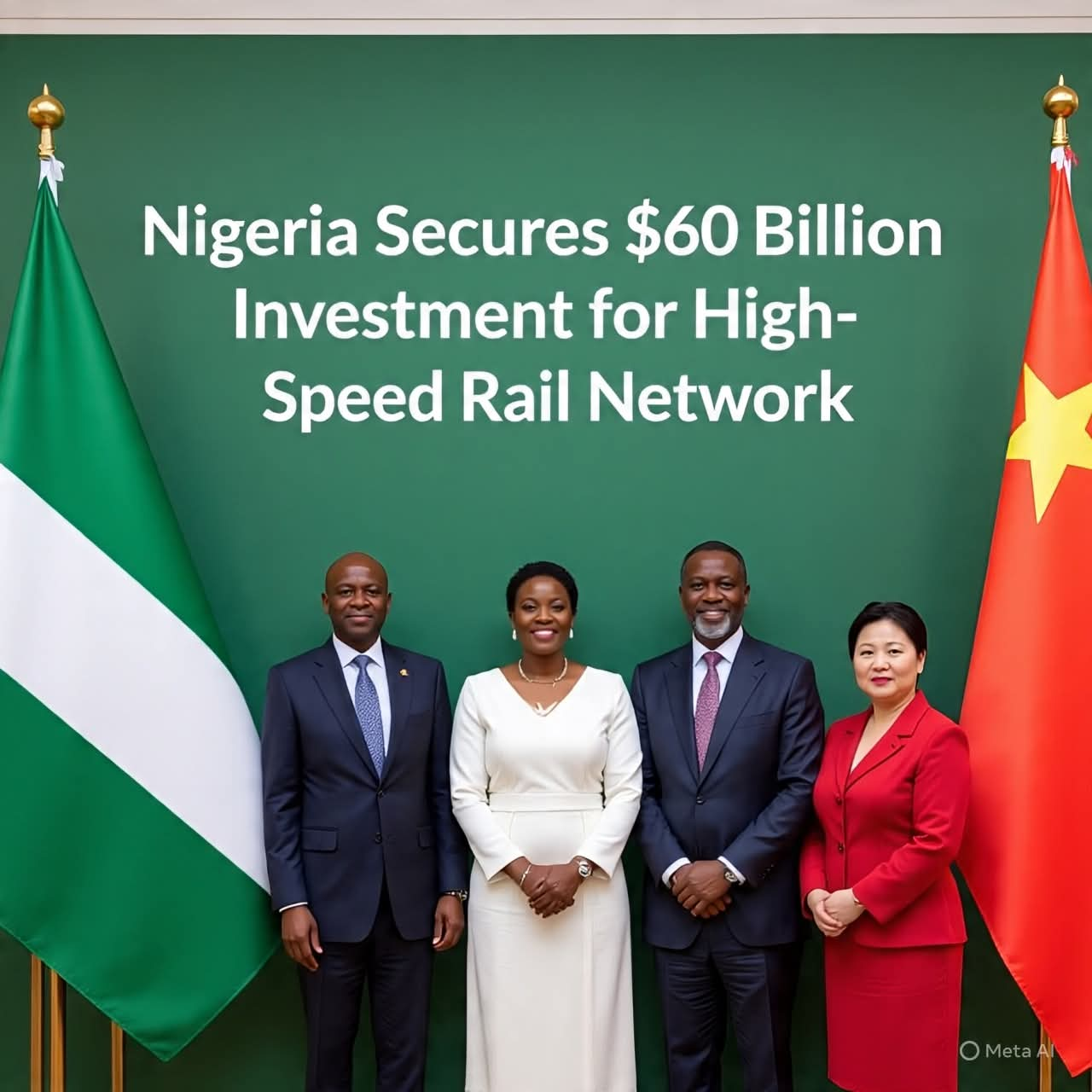
ABUJA, NIGERIA – The Federal Government of Nigeria has reaffirmed its strong commitment to overhauling the nation’s transportation system with an ambitious plan to construct a 4,000km high-speed rail network. This monumental project aims to connect vital economic hubs across the country, significantly boost trade, and foster greater national unity.
The Secretary to the Government of the Federation (SGF), Senator George Akume, CON, recently received the management team of De-Sadel Nigeria Limited and their financial partners, China Liancai Petroleum Investment Holdings Limited, in Abuja. The meeting saw the formal presentation of a $60 billion proof-of-funds for this groundbreaking initiative, signaling a major step forward.
Senator Akume described the engagement with the investors as “highly encouraging,” emphasizing that the presented proof-of-funds for the project’s initial phase will undergo rigorous verification processes, adhering to standard government protocols.
Boosting Transportation Efficiency and Attracting Investment
The Honourable Minister of Transportation, Senator Sa’idu Alkali, underscored the project’s alignment with the Ministry’s core objectives. He stated that it directly supports the provision of “safe, secure, efficient, and affordable transport services,” while simultaneously advancing President Bola Ahmed Tinubu’s vision of attracting substantial foreign investment into crucial infrastructure development.
Adding to this, the Honourable Minister of State for Petroleum Resources (Gas), Rt. Hon. Ekperikpe Ekpo, reassured the investors of the Federal Government’s unwavering commitment to ensuring an adequate gas supply to power the extensive rail network. He highlighted Nigeria’s substantial proven gas reserves of 210 trillion cubic feet, with an additional 600 trillion cubic feet located in deep offshore deposits, ensuring the project’s long-term energy needs can be met.
Phased Development Connecting Key Economic Zones
Mr. Samuel Uko, the Chief Executive Officer of De-Sadel Nigeria Limited, provided details on the project’s execution strategy. He explained that the ambitious undertaking will be implemented in phases, with the first phase spanning approximately 1,700 kilometers and connecting four major economic centers: Lagos, Abuja, Kano, and Port Harcourt. Mr. Uko also shared the encouraging news that completed sections of the railway will be opened to the public even before the overall 36-month completion target.
Rigorous Due Diligence for Project Viability
The Director-General of the Infrastructure Concession Regulatory Commission (ICRC), Dr. Jobson Ewalefoh, emphasized the critical nature of the proof-of-funds submission, highlighting it as a mandatory requirement for projects of this scale. He assured the public and stakeholders that the ICRC will conduct a thorough review and validation process to meticulously assess the financial and technical viability of the proposed high-speed rail network.
Adding to Nigeria’s Development: A Nation on the Move
This visionary high-speed rail project holds immense potential to significantly contribute to Nigeria’s overall development in numerous ways:
Enhanced Connectivity and Trade Facilitation: The efficient movement of goods and people between major economic centers like Lagos, Abuja, Kano, and Port Harcourt will be drastically improved. This enhanced connectivity will lower transportation costs, reduce travel times, and stimulate inter-regional trade, fostering economic growth across the nation.
National Integration and Social Cohesion: By making travel between different parts of Nigeria faster and more comfortable, the high-speed rail network can help to bridge geographical distances and foster a greater sense of national unity and social cohesion among Nigerians from diverse backgrounds.
Job Creation and Economic Empowerment: The construction and operation of a 4,000km high-speed rail network will generate a significant number of jobs across various sectors, including engineering, construction, manufacturing, and transportation services, contributing to economic empowerment and reducing unemployment.
Attracting Foreign Direct Investment: A project of this magnitude and ambition sends a strong signal to the international community about Nigeria’s commitment to infrastructure development and economic progress. This can attract further foreign direct investment into other sectors of the Nigerian economy.
Modernizing Infrastructure and Improving Quality of Life: The development of a state-of-the-art high-speed rail network will significantly modernize Nigeria’s transportation infrastructure, bringing it in line with global standards. This will improve the overall quality of life for citizens by providing a faster, safer, and more comfortable mode of transportation.
Sustainable Transportation Solution: High-speed rail is a more environmentally friendly mode of transportation compared to road travel and air travel for medium distances. This project can contribute to reducing Nigeria’s carbon footprint and promoting sustainable development.
The Federal Government’s unwavering commitment to this high-speed rail project, coupled with the significant financial backing and rigorous regulatory oversight, offers a promising outlook for the future of transportation and development in Nigeria. As the project progresses through its verification phases, it stands poised to become a transformative infrastructure achievement for the nation.
Ready to explore Nigeria nationwide? Browse our directory to discover places, businesses, or events near you!








Add Comment